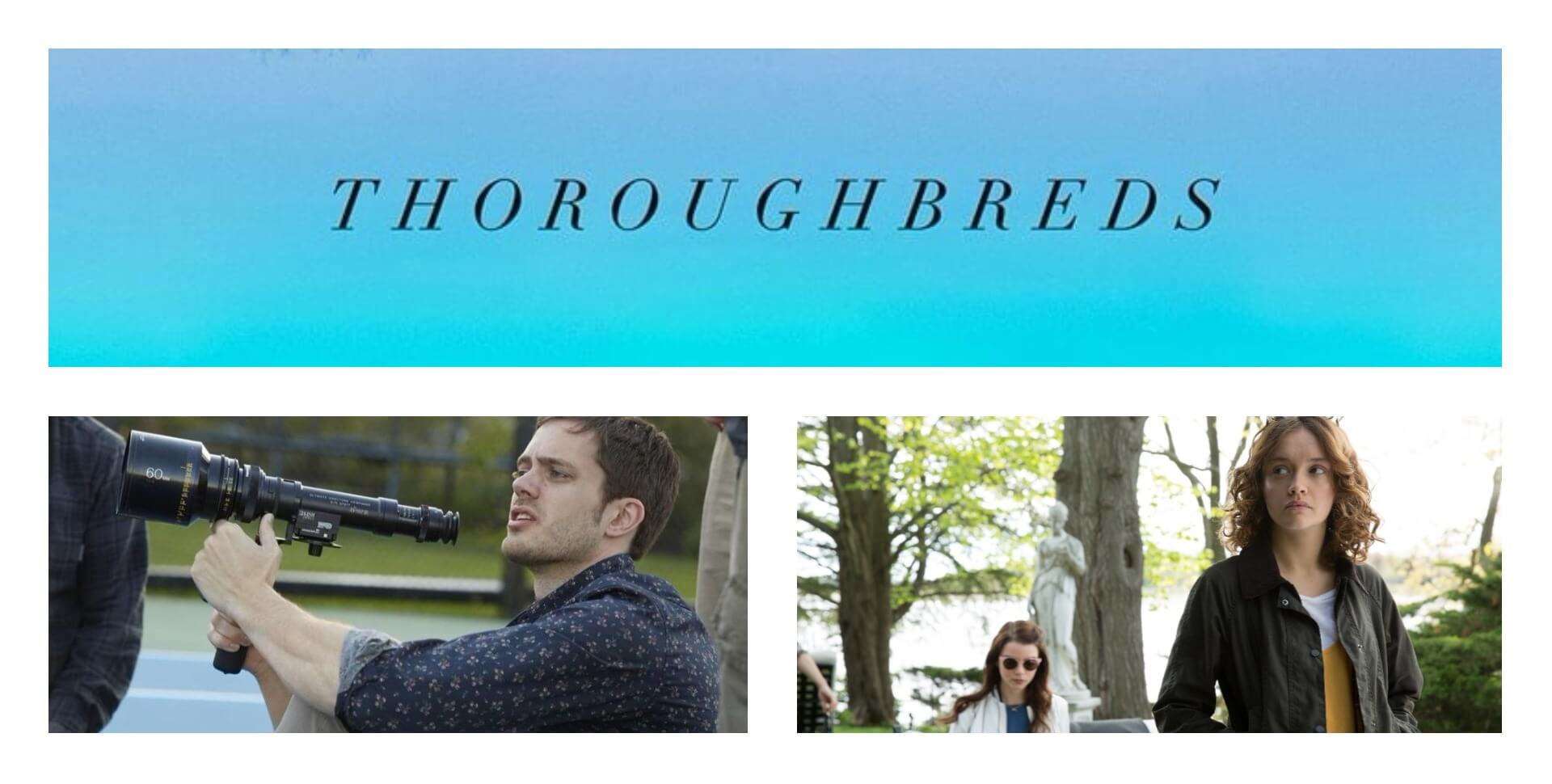To promote his black comedy thriller, Thoroughbreds, first-time director Cory Finley premiered his film at the Palm Springs International Film Festival. The premise follows two teenage girls, Lily and Amanda, who having been former best friends and spending some time apart, concoct a plan to kill Lily’s stepfather.
Borrowing Tape caught up with Finley to talk more about his debut.
A lot of the cinematography in Thoroughbreds has a very claustrophobic feel. Was that part of your vision when you were planning out the shots?
Lyle Vincent, who was the cinematographer, is a really brilliant guy and some of his work I had secretly admired from afar before working with him, like A Girl Walks Home Alone at Night. We talked a lot earlier on about making it feel as non-play-like as possible. I think it’s hard to have a script that originally started out as a play, such as Thoroughbreds, transition to film. It was sort of a challenge for ourselves to make the scenes as cinematic vs. theatrical as possible. And that meant making choices that brought us closer to the actor as opposed to just shots with movement.
Did you have any prior film experience beforehand or was it just mainly theatre?
My background was only as a fan. I knew I really loved the movies and I knew I wanted to make one, and when I wrote the script as a play, I didn’t intend for it to be the one I adapted. In the later stages of writing Thoroughbreds, I just kept catching myself envisioning it in cinematic terms and realizing there was this thriller spine to it that I thought worked best onscreen. So I did as much reading, and writing, and listening to director and actor friends as possible, but after a very brief visit to a friend’s set, my first day directing the movie was my first time directing ever. So, it was a lot of learning and doing.
What inspired you to write the script in the first place?
I often start writing plays from an image and the first image had to do with a violently euthanized horse and if I were to psychoanalyze myself, it would probably stem from the idea of putting pets to sleep as a kid. That was my first experience with death and it’s something that’s very intense, like a mercy killing that’s primal and ancient. Something about that image stuck with me and freaked me out. I have a very low tolerance for violence myself, but I just followed that thread that led me to create the two main characters.
The music used in the film is very different and unexpected. How did you come up with the sound?
I knew that sound was going to be an important piece and I had some general ideas about the score, but the particular shape that it took in the final version of the movie is what it crystallized into. The composer I worked with was Erik Friedlander, who’s a real virtuoso and a talented cellist who comes from an improvisational jazz background. I was lucky to work with a music supervisor on the movie and I told her I was interested in finding a musician that would bring a real gritty and sometimes unpleasant sound. Because while we shot a visually appealing movie, I didn’t want it to be too much of a seductive experience and I tried to create a balance for almost moral reasons. I almost wanted it to be a jagged watching experience. There’s really only three instruments used in the score: Erik’s cello played in all sorts of weird, extended techniques, prepared piano, and different kinds of percussion.
What influenced you to create the personalities and relationship between the two main characters?
I think initially, in the very earliest stage, I had this character who wanted to do something very violent and had the capacity to, and another who had the capacity for violence but not the will for it. Someone who wasn’t as bad of a person as you would think. You are afforded an interesting privilege when starting something as a play because you can sort of listen to your characters talk. There was very little conscious movement of their behavior, I’m sure there’s a lot of deep seeded psychological problems within both of them. I just tried to imagine how their conversations would go.
Follow our coverage of the
2018 Palm Springs International Film Festival
